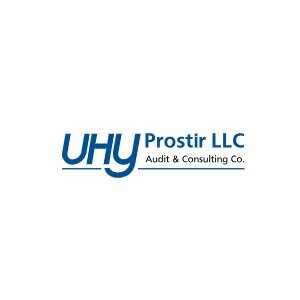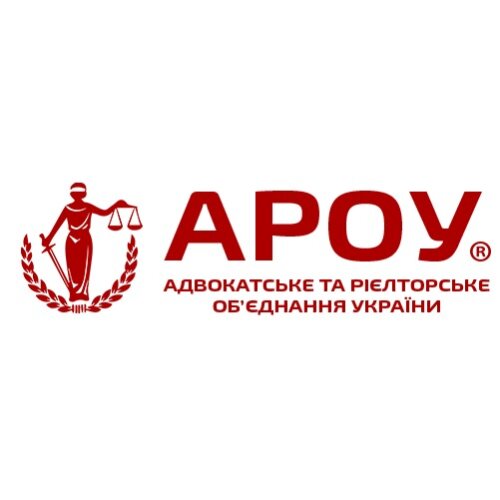Best Project Finance Lawyers in Kyiv
Share your needs with us, get contacted by law firms.
Free. Takes 2 min.
List of the best lawyers in Kyiv, Ukraine
About Project Finance Law in Kyiv, Ukraine
Project finance is a method of funding large-scale infrastructure, industrial, and public service projects using a combination of debt and equity. In Kyiv, Ukraine, this legal field involves structuring deals so that the project itself serves as collateral, with repayments generated from the project's cash flows. Such arrangements are common in energy, transport, construction, and public-private partnership (PPP) initiatives. The legal framework encompasses multiple areas, including contract law, securities regulation, banking law, tax considerations, and government permits.
Why You May Need a Lawyer
There are various scenarios in which professional legal advice is essential for anyone involved in project finance in Kyiv. A project finance lawyer can help you:
- Navigate complex negotiations between sponsors, lenders, and local authorities.
- Draft and review loan agreements, security documents, and concession contracts.
- Ensure compliance with Ukrainian and international law.
- Obtain required governmental approvals and permits.
- Structure investments to optimize tax liabilities.
- Handle disputes, defaults, or restructuring if financial issues arise.
- Manage risks connected to currency controls, expropriation, or regulatory changes.
- Advise on cross-border financing and international project standards.
Given the high value and legal complexity of most projects, engaging an experienced lawyer can mitigate risks and increase your project's chances of success.
Local Laws Overview
Ukraine has undertaken significant reforms to improve its investment climate, especially in relation to project financing. Some key legal aspects relevant to project finance in Kyiv include:
- Concession Law: Regulates public-private partnerships, enabling private investors to finance, build, and operate infrastructure projects.
- Secured Transactions: Ukrainian law allows for various forms of collateral, such as pledges of movable and immovable property, bank accounts, and assignment of rights.
- Foreign Investment: Foreign investors generally have the same rights as domestic entities and benefit from protective legislation, though practical challenges remain.
- Banking Regulations: National Bank of Ukraine oversees currency controls, loan registration, and cross-border financial flows.
- Taxation: Project structures need to consider corporate income tax, VAT, and potential tax incentives for particular projects (for example in energy or infrastructure).
- Dispute Resolution: Contracts often contain arbitration clauses, and there is an established system for international arbitration enforcement.
Ongoing reforms and changes to project finance-related legislation mean that up-to-date legal advice is essential.
Frequently Asked Questions
What is project finance and how does it work in Ukraine?
Project finance in Ukraine involves arranging funding for a specific project using its future cash flows as collateral, while protecting investors and lenders through contractual and legal structures. The repayment is made from the project revenues, with limited recourse to the sponsors.
Which sectors typically use project finance structures?
Common sectors include energy (renewable and conventional), transportation infrastructure (roads, ports, airports), water and wastewater treatment, telecommunications, and large-scale industrial developments.
Can foreign investors participate in project finance in Kyiv?
Yes, foreign investors are welcome and have rights comparable to local entities. Ukraine offers protections for foreign capital, though local legal representation is highly recommended.
What permits and approvals are required to start a project finance transaction?
You will usually need business registration, environmental assessments, construction permits, land use rights, and sector-specific authorizations, depending on the project profile.
How are risks managed in project finance deals?
Legal mechanisms to manage risk include security agreements, step-in rights for lenders, guarantees, insurance, change-of-law protections, and detailed contractual arrangements between the project parties.
What kind of security can lenders take in Ukraine?
Lenders may take pledges over project assets, rights under project contracts, shares, bank accounts, and receivables. Security must be properly registered in relevant Ukrainian registries.
Are there currency controls or restrictions on profit repatriation?
Ukraine has currency controls and reporting requirements that affect cross-border repayments and profit repatriation. Recent reforms have aimed to liberalize these restrictions, but specific compliance steps are still necessary.
What dispute resolution mechanisms are commonly used?
Parties often choose international arbitration, frequently under ICC or LCIA rules, or Ukrainian commercial courts for dispute resolution. Contractual arbitration clauses are standard in large deals.
Are there any tax incentives for project finance in Kyiv?
Certain sectors, such as renewable energy or IT infrastructure, may benefit from tax incentives. These incentives are subject to ongoing legislative updates and should be confirmed on a case-by-case basis.
How long does it take to complete a project finance transaction in Kyiv?
The timeline varies based on project scale and regulatory complexity but typically ranges from several months to over a year, especially for large or innovative projects.
Additional Resources
For further information and guidance on project finance in Kyiv, consider the following organizations and bodies:
- Ministry of Economy of Ukraine - for investment policies and public-private partnership regulations.
- National Bank of Ukraine - for currency control rules and financial regulation.
- State Agency on Energy Efficiency and Energy Saving - for energy sector projects.
- Ukrainian Chamber of Commerce and Industry - for business support and networking.
- Local law firms specializing in project finance and infrastructure law.
- International development banks with Ukrainian offices, such as EBRD and IFC, which often publish updated guides and best practices.
Next Steps
If you are considering entering into a project finance transaction in Kyiv, Ukraine, follow these recommended steps:
- Clearly define your project goals and funding requirements.
- Consult with a local lawyer or law firm experienced in project finance to review your plan and identify legal requirements.
- Gather necessary documentation, such as business plans, permits, and project feasibility studies.
- Engage with local authorities early to understand all permitting and compliance steps.
- Identify potential partners, investors, or lenders and begin preliminary negotiations.
- Ensure all agreements are thoroughly reviewed before signing, with special attention to risk allocation and dispute resolution provisions.
- Stay updated on changes in Ukrainian laws and regulations that may impact your project.
With the right legal support and planning, your project finance initiatives in Kyiv can progress more smoothly and with greater protection against unforeseen legal issues.
Lawzana helps you find the best lawyers and law firms in Kyiv through a curated and pre-screened list of qualified legal professionals. Our platform offers rankings and detailed profiles of attorneys and law firms, allowing you to compare based on practice areas, including Project Finance, experience, and client feedback.
Each profile includes a description of the firm's areas of practice, client reviews, team members and partners, year of establishment, spoken languages, office locations, contact information, social media presence, and any published articles or resources. Most firms on our platform speak English and are experienced in both local and international legal matters.
Get a quote from top-rated law firms in Kyiv, Ukraine — quickly, securely, and without unnecessary hassle.
Disclaimer:
The information provided on this page is for general informational purposes only and does not constitute legal advice. While we strive to ensure the accuracy and relevance of the content, legal information may change over time, and interpretations of the law can vary. You should always consult with a qualified legal professional for advice specific to your situation.
We disclaim all liability for actions taken or not taken based on the content of this page. If you believe any information is incorrect or outdated, please contact us, and we will review and update it where appropriate.

















